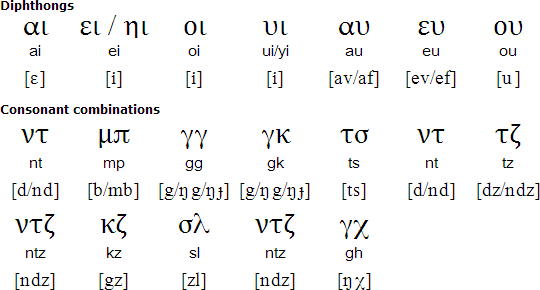


“Look at this one,” he said, revealing a bird neatly decorated in colored pencil, the word “peace” scrolled in English underneath it. Speaking to reporters on the way home that day, he held up a drawing handed to him by a child from the island’s sprawling refugee camp. So, it would be more accurate to say that Biblical Greek is a subset of Koine Greek.īut on this site, the terms are used interchangeably.LESBOS, Greece (AP) - When Pope Francis visited the Greek island of Lesbos in 2016, he was so moved by the stories he heard from families fleeing war in Iraq and Syria that he wept and brought a dozen refugees home with him. and 600 A.D., and Biblical Greek was used by the Christian Church after the death of Christ. Now, depending on the context, this may indeed simply mean “old men”…or it may mean “old men governing within the hierarchy of the early Christian Church”. For example, the New Testament may use the Koine word for “old men”. The main difference is that Biblical Greek will occasionally give uniquely Christian meanings to words from Koine. The grammar is the same, and the vocabulary is mostly the same. Is Biblical Greek The Same As Koine Greek?įor the most part, yes. This form of Greek continued to be widely-used in the region even after the Roman conquest (as well as within Rome herself), which is why Koine Greek was the preferred language for writing the New Testament and disseminating the gospels. Once the Middle East fell under Greek control, the inhabitants began using Koine Greek as a common language ( lingua franca) alongside Aramaic.

Extent of Koine in the Greek-Inhabited World of Alexander the Great Ostler, Nicholas (2006), Empires Of The Word: A Language History Of The World, Harper Perennial, p 244. However, with the conquests of Alexander the Great, political centralization and trade homogenized these local versions of the language into Koine (“Common”) Greek. Map Of Ancient Greece According To Dialect Ostler, Nicholas (2006), Empires Of The Word: A Language History Of The World, Harper Perennial, p 237.

Why Was The New Testament Written In Biblical Greek?ĭuring the Classical era, Greece was divided into areas speaking five different dialects of Ancient Greek (ie: Arcado-Cyprian, Aeolic, Attic-Ionic, Doric, and North-Western).


 0 kommentar(er)
0 kommentar(er)
